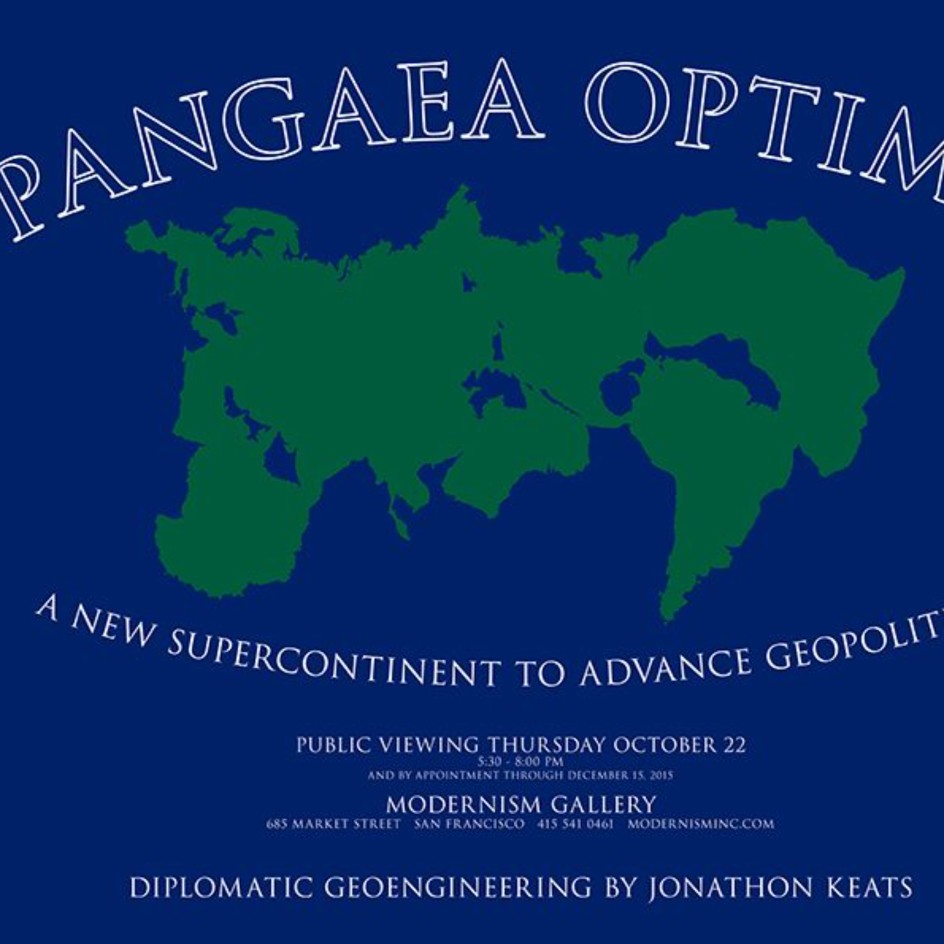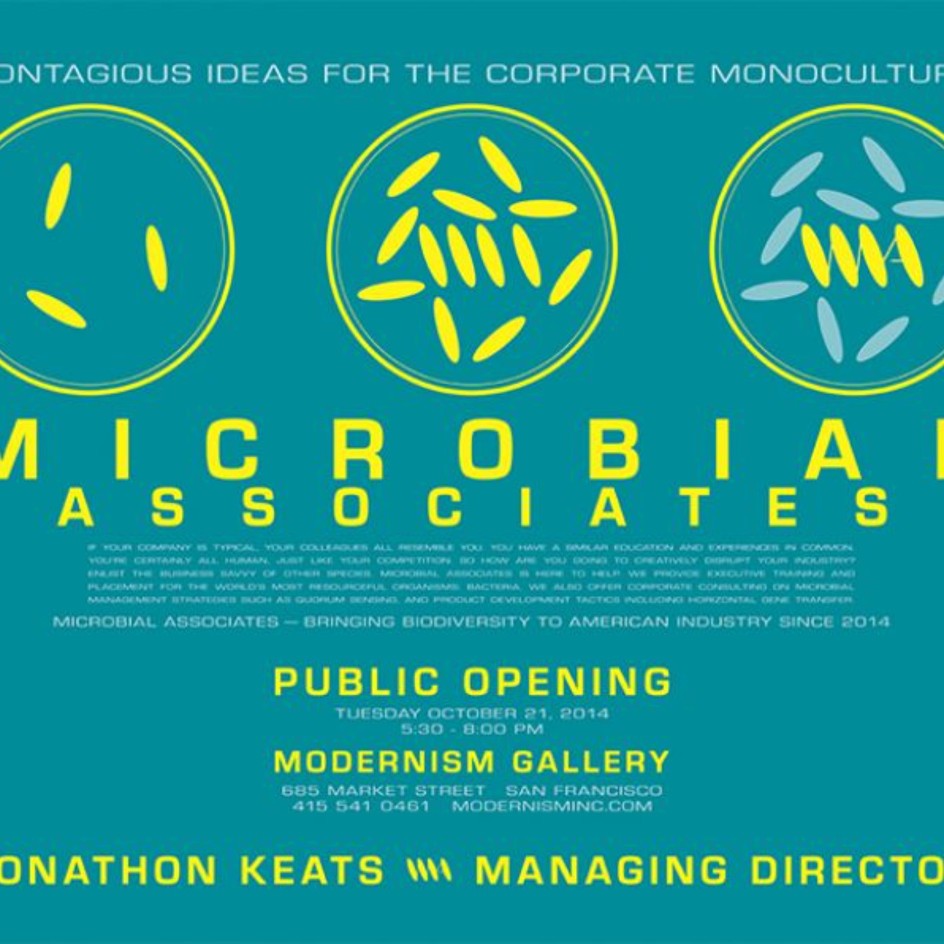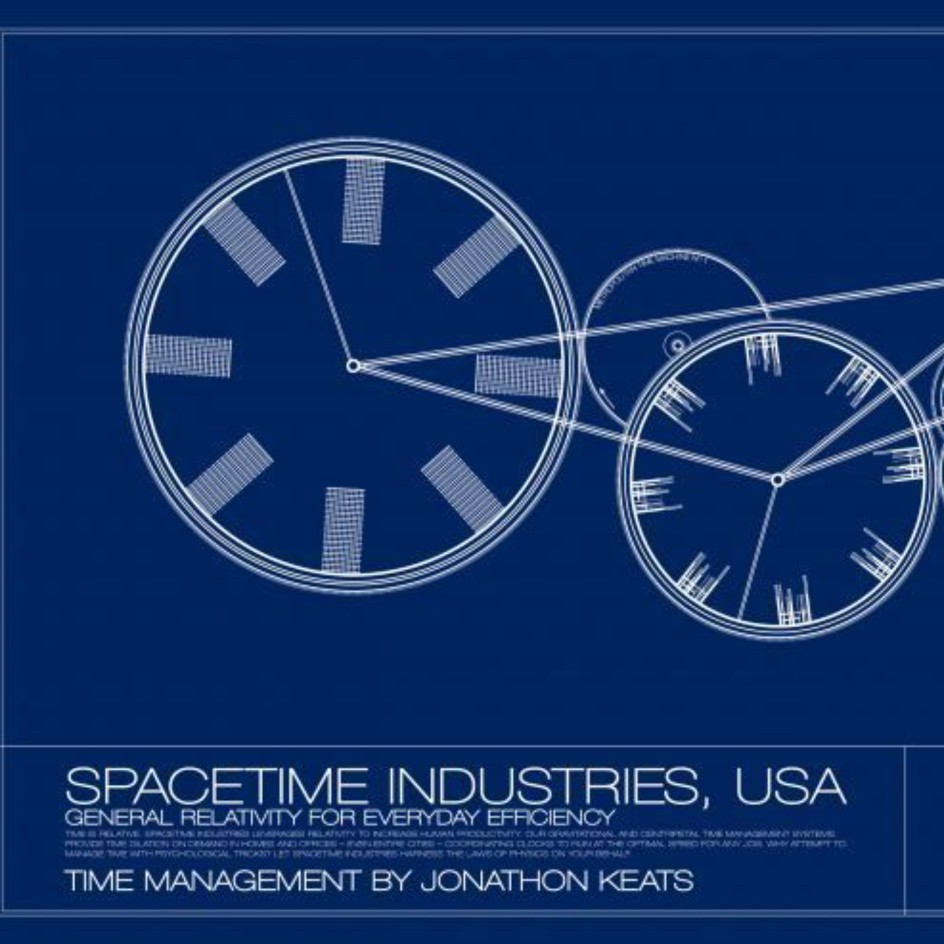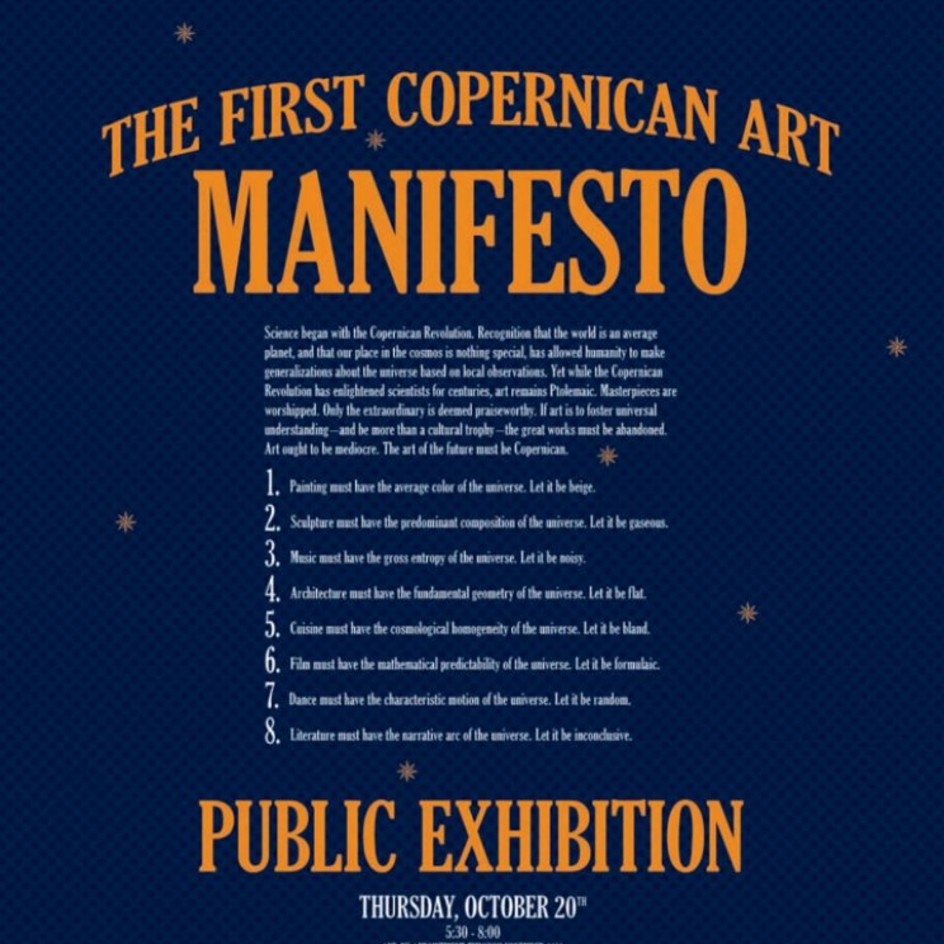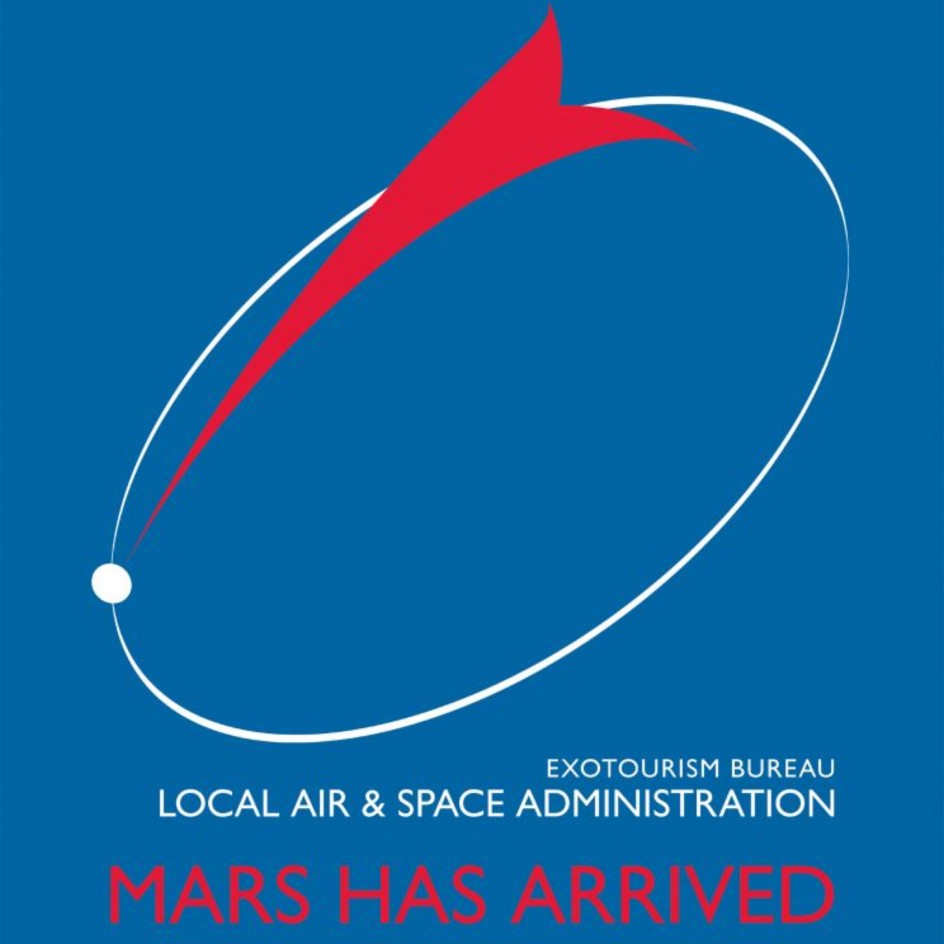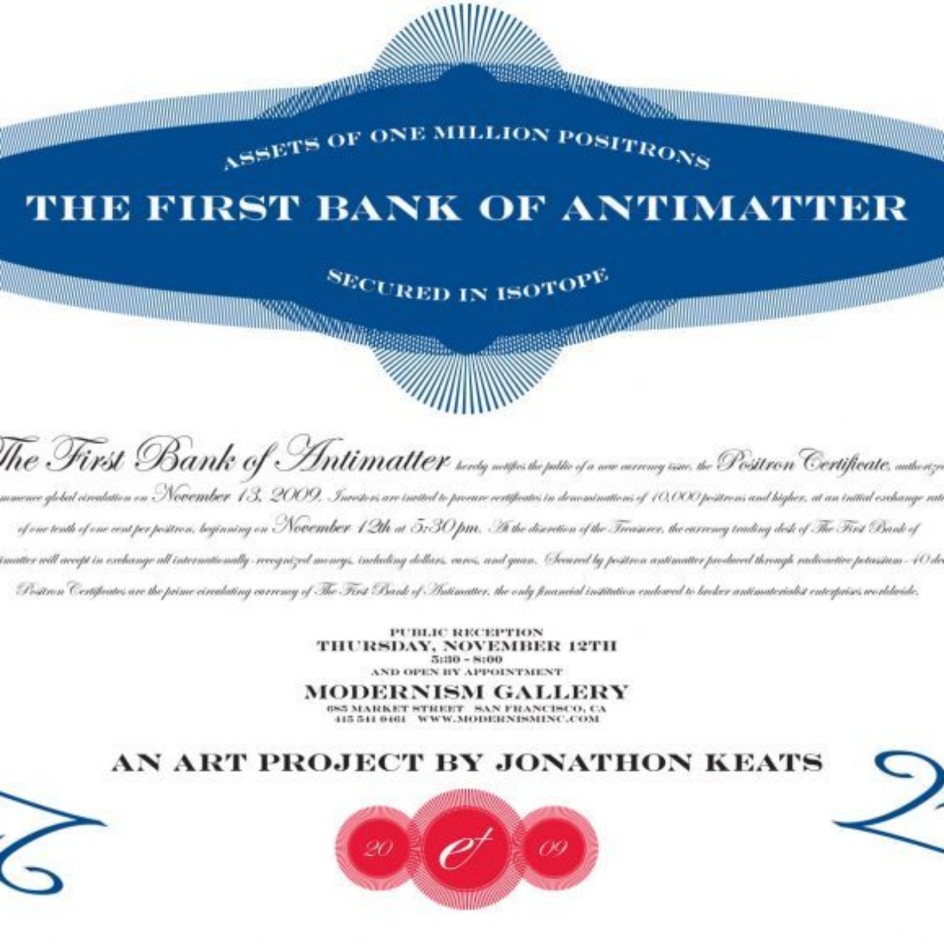Jonathon KEATS
THE FUTURE DEMOCRACIES LABORATORY
GRAND OPENING: RESEARCH AND DEVELOPMENT SHOWROOM
WEDNESDAY, OCTOBER 30, 2024, 6-8PM AND BY APPOINTMENT
Summary
For Immediate Release
Contact: jonathonkeats@gmail.com
Patent Filed on Democracy Ahead of 2024 Election as Defense Against Future Political Shenanigans
Innovations Include Legislative Automation and Nonhuman Voting System… Research and Development at San José State University’s Future Democracies Laboratory… Prototypes to be Exhibited in San Francisco Showroom on October 30th… Inventions Pledged to Political Patent Commons
Confronting simultaneous crises in American democracy and global ecology, a pioneering laboratory at San José State University has invented technologies to fundamentally alter elections and governance. Under the direction of experimental philosopher and artist Jonathon Keats, working in collaboration with SJSU faculty and students, the Future Democracies Laboratory has developed protocols for including all living beings in politics in order to better represent the interests of the whole planet. The lab has also prototyped breakthrough technologies to make laws reflecting the will of a taxonomically diverse electorate without the problematic interventions of human politicians. A newly-formed patent commons will ensure that these innovations are available to everyone.
“People constantly gripe about the partisanship and corruption of elected officials, and the inadequacy of their policies.” says Mr. Keats, who is currently a visiting scholar at SJSU. “It’s hard to disagree, given the degree of discontentment with the world in which we live. Our lab is dedicated to exploring root causes of dysfunction and investigating alternatives by fearlessly asking what if?”
On the eve of the 2024 election, as discontentment verges on revolution, the laboratory will open a showroom in San Francisco’s Modernism Gallery, unveiling technologies that radically rethink centuries of political dogma. “Our work originated more than a decade ago with a simple thought experiment,” Mr. Keats explains. “What if we re-engineered our political system to operate without people at the helm?” The lab replaced politicians with random number generators weighted to represent the will of the majority with high frequency but without perfect fidelity, providing a crucial check on the tyranny of the masses. These random number generators, one for each member of Congress, were configured to emulate the legislative process, with new laws generated by random mutation of legal code from the past.
Mr. Keats quickly recognized that the thresholds of random number generators could be adjusted continuously, reflecting realtime changes in political sentiment, but he also realized that people wouldn’t want to spend their whole lives inside a voting booth. “Instead of requiring citizens to register their preferences by punching holes in cardboard, I reasoned that we could simply monitor changes in their stress level,” explains Mr. Keats. “We can measure physiological changes such as heart rate, increasing the probability that random number generators will vote for change as stress increases. For even greater accuracy, biomedical devices have the potential to measure changes to the stress hormone cortisol from one moment to the next.”
Humans are not the only animals to use cortisol as a stress hormone. Based on this fact, the voting system has been conceived to include input from mammals ranging from orangutans to chipmunks, as well as birds and bees. Other species manifest stress with other hormones that are no less measurable. For instance, stressed plants emit a volatile called ethylene. The Future Democracies Laboratory is collaborating with organizations including the Institute of Contemporary Art San José, the University of South Australia, and Earth Law Center to integrate all of these inputs into democratic decision-making and to inspire human voters to reconnect with the rest of nature.
“In terms of biomass, our species constitutes less than one percent of life on Earth,” says Mr. Keats, who also serves as Earth Law Center’s principal philosopher. “Humans are oblivious to most of what happens on our planet, and our human neurobiology limits our thinking. To ignore the perspectives of other species is reckless and also deeply unfair to them. Environmental justice depends on more holistic governance.”
Keats emphasizes that the lab’s stress-based voting protocol and automated congressional platform are still largely untested in the wild and may not achieve their desired goals. “They could turn out to be catastrophic,” Mr. Keats admits. “As a research laboratory, we’re investigating possible futures to assess how they might impact society before they’re enacted. We’ve preemptively filed for patent protection – and secured a provisional patent – in order to prevent corporate and political opportunists from profiteering.
“Equally important, by presenting our speculative technologies to the public and allowing people to interact with them in our San Francisco showroom, we’re engaging the community in the process of deciding collectively what’s in our best interest: democratizing how we conceptualize democracy.”
On October 30th, from 6:00 to 8:00 PM, a selection of technologies will be on view in the Future Democracies Laboratory’s San Francisco showroom at Modernism Gallery, where they’ll be shared with the public and made available for licensing by companies seeking innovation in corporate governance. Apparatus on view will include a legislative mutation board and an experimental voting system for houseplants.
Concurrently, the Institute of Contemporary Art San José will showcase a range of Future Democracies Laboratory prototypes including an interactive electronic apparatus for reconfiguring government developed at SJSU’s CADRE Laboratory for New Media in collaboration with Professor Steve Durie. The apparatus will be installed at the ICA until February. Collected data will inform future R&D.
About Jonathon Keats
Acclaimed as a “poet of ideas” by The New Yorker and a “multimedia philosopher-prophet” by The Atlantic, Jonathon Keats is an artist, writer and experimental philosopher whose conceptually-driven transdisciplinary projects explore all aspects of society, adapting methods from the sciences and the humanities. He has exhibited and lectured at dozens of institutions worldwide, from the Los Angeles County Museum of Art to Stanford University to the Triennale di Milano, and from SXSW to CERN to UNESCO. He is the author of six books on subjects ranging from science and technology to art and design – most recently You Belong to the Universe: Buckminster Fuller and the Future, published by Oxford University Press – and is the author of a monthly art column for Forbes.com. He has been an artist-in residence at the Fraunhofer Institute for Building Physics, UC Berkeley's Sagehen Creek Field Station, and the LACMA Art + Technology Lab, a Black Mountain College Legacy Fellow at the University of North Carolina-Asheville, an Imaginary Fellow at Arizona State University’s Center for Science and the Imagination, and a Research Fellow at the Nevada Museum of Art's Center for Art + Environment. Keats is currently a fellow at the Berggruen Institute, a research associate at the University of Arizona, a research fellow at the Highland Institute and the Long Now Foundation, principal philosopher at Earth Law Center, an advisor in metadisciplinary studies at the University of Zürich, and an artist-in-residence at the SETI Institute and Flux Projects. As an artist, Keats is represented by Modernism Gallery in San Francisco. A monograph about his work, Thought Experiments, was recently published by Hirmer Verlag.
Press
Jonathon KEATS
Atmospheric Almanac
2020-08-25
Jonathon KEATS
TIME Space Newsletter
2019-09-10
Jonathon KEATS
Fast Company Profile
2019-09-03
Jonathon KEATS
Press Release: PIONEERS OF THE GREATER HOLOCENE
2019-08-20
Jonathon KEATS
Press Release: Intergalactic Omniphonics
2018-07-05
Jonathon KEATS
Press Release: The New Look of Neuroscience
2017-03-03
Jonathon KEATS
EPIC GEOENGINEERING SCHEME TO COUNTER CLIMATE CHANGE WITH NEW SUPERCONTINENT
2015-10-22
Jonathon KEATS
Fast Company
2015-10-21
Jonathon KEATS
San Jose Mercury News
2015-10-20
Jonathon KEATS
Grist
2015-10-19
Jonathon KEATS
WNPR
2015-10-18
Jonathon KEATS
Tech Insider
2015-10-17
Jonathon KEATS
Discovery News
2015-10-16
Jonathon KEATS
Big Think
2015-10-15
Jonathon KEATS
Discovery News: Should Silicon Valley Hire Microbes?
2014-09-27
Jonathon KEATS
Press Release: Microbial Associates 2014
2014-09-27
Jonathon KEATS
American conceptual artist Jonathon Keats photographs a city's century -- in a single shot
[original link]
2014-05-21
Jonathon KEATS
Jonathon Keats / fastcoexist.com
2013-09-17
Jonathon KEATS
Jonathon Keats | Spacetime Industries
2013-09-04
Jonathon KEATS
Epigenetic Cloning - Examiner Article
2012-11-09
Jonathon KEATS
WNPR interview
2012-10-04
Jonathon KEATS
Wired article
2012-10-04
Jonathon KEATS
Epigenetic Cloning Agency press release
2012-10-04
Jonathon KEATS
Jonathon Keats Press Release 2012 B
2012-09-20
Jonathon KEATS
Jonathon Keats Press Release 2012
2012-09-20
Jonathon KEATS
New Yorker Profile
2011-04-08
Jonathon KEATS
Good Magazine Profile
2011-04-07
Jonathon KEATS
Salon.com Interview
2011-04-06
Jonathon KEATS
Space.com Interview
2011-04-05
Jonathon KEATS
Jonathon Keats - Wikipedia
2011-04-04
Past EXHIBITIONS
2024
-
THE FUTURE DEMOCRACIES LABORATORY
GRAND OPENING: RESEARCH AND DEVELOPMENT SHOWROOM

-
The Library of the Great Silence
March 10, 2022 and by appointment

-
PIONEERS OF THE GREATER HOLOCENE
PUBLIC OPENING SEPTEMBER 5, 2019 5:30-8:00 PM AND BY APPOINTMENT

-
Intergalactic Omniphonics
Tuesday, July 24th, 5:30-8PM and by appointment

-
The New Look of Neuroscience
Thursday, March 16, 5:30-8PM and by appointment




